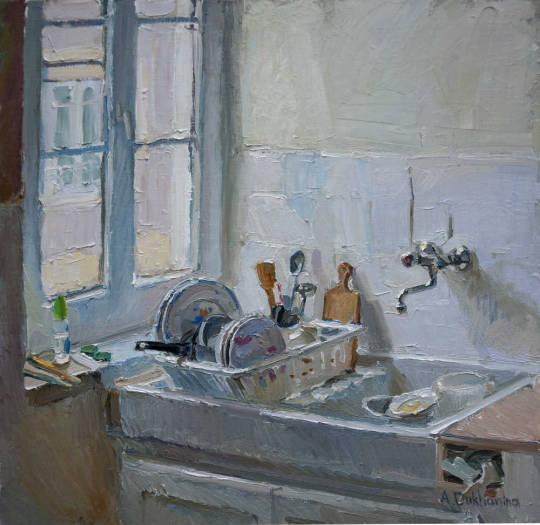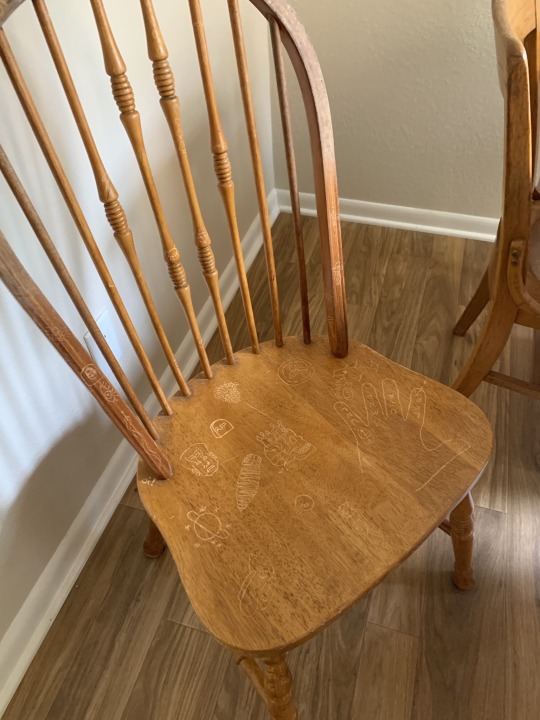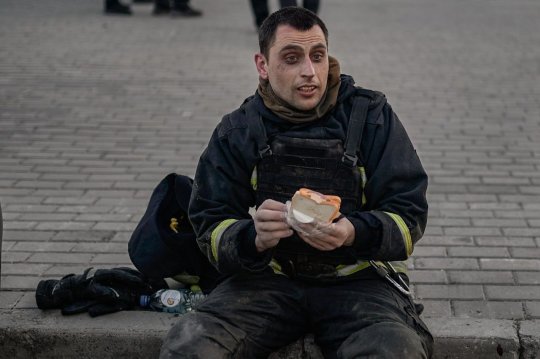#russian kitchen
Explore tagged Tumblr posts
Text
14 notes
·
View notes
Text
If you want to support Ukrainians, DO NOT donate to Red Cross. Can't speak about their work in other countries, but they're useless in Ukraine. The only trustworthy international organisation I can think of is World Central Kitchen.
Donate to World Central Kitchen

And it's even better to donate directly to Ukrainian organisations. Here are a few good legit places:
hospitallers.life - "Hospitallers", Ukrainian paramedics on the frontlines
savelife.in.ua - "Come Back Alive", assistance to the army
prytulafoundation.org - "Prytula Foundation", assistance to the army, humanitarian causes
starenki.com.ua - "Starenki", helping elderly people
everybodycan.com.ua - "Everybody Can", helping disabled children, elders and hospitals
uanimals.org - "UAnimals", saving animals

#Ukraine#wck#world central kitchen#donation#charity#red cross#russia#russia is a terrorist state#genocide#stand with ukraine#support ukraine#genocide of ukrainians#russian war crimes#war#support#help#link#words#typography#text#txt#donate#children#elderly care#animals#army#medicine#food#disability#fundraising
6K notes
·
View notes
Text

Kitchen - Anastasia Dukhanina , 2021.
Russian , b. 1983 -
Oil , 60 x 60 cm.
2K notes
·
View notes
Text

#romantic academia#books and coffee#moodboard#dark academia aesthetic#dark academia moodboard#soft aesthetic#light academia moodboard#dark academia vibes#aesthetic#source: pinterest#not my oc#art academia#breakfast in bed#slow living#vintage home#cozy cottage kitchen#autumn cozy#russian winter#winter#winter aesthetic#snow scenes#winter season aesthetic#winter magic aesthetic#cottagecore Christmas#victorian christmas#Anthropologie Christmas tree#vintage christmas#vintage Christmas aesthetic#old fashioned aesthetic
52 notes
·
View notes
Text

One of the NGOs that's been consistently here for us is World Central Kitchen. As soon as the disaster instigated by russia has struck, they've joined the efforts with Ukrainian volunteers, military and civic services and are providing food, water and other immediate help on the ground.
Along with grassroots Ukrainian volunteer orgs like Come Back Alive and Prytula Foundation, WCK is definitely worth donating to!
#stand with ukraine#volunteer organisations#world central kitchen#come back alive#disaster relief#spread the word please#russian war crimes#russia is a terrorist state
434 notes
·
View notes
Text
Romanov Reads; a book review series
Episode 1: “The Kitchen Boy” by Robert Alexander

Pages: 204 -
Published: January 2003
Genre: Historical Fiction
The Kitchen Boy by Robert Alexander is a brilliant piece of fiction that revolves around the last kitchen boy to the Romanov Family, Leonid Sednev (pronounced Sednyov), and his story of living and working at the Ipatiev House aka “The House of Special Purpose”.
As a preface, this book was written in 2003 which is a key factor you need to know before reading this book. At the time this book was written only one of the two Romanov gravesites had been discovered and this is the grave containing the Imperial Couple (Nicholas and Alexandra), 3 of their daughters (Olga, Tatiana, and Anastasia), and their 4 servants (Botkin, Kharitonov, Trupp, and Demidova). This gravesite was discovered by amateur archaeologists in 1991 and was concealed until after the fall of the Soviet Union before it was shown to the public. Deep analysis and reconstruction of the full skeleton sets were done which concluded who was in these graves and who was not. Skeletal reconstruction shows that only 3 daughters were accounted for and there were no bones belonging to an almost 14 year old boy or a 4th daughter. The remains of the 4th daughter (Maria) and son (Alexei) were found 4 years after this book was published, in 2007, so this book explores what could’ve happened to the missing two bodies. This explains everything that happened in the last third of the book and is significant because it helps you understand the author’s creative purposes. Now knowing and understanding this crucial information, we can now provide a description of the accuracies and inaccuracies of this book.
This book is historical fiction. This is important because it is not the real Lyonka talking but is a reconstruction. This reconstruction is a beautifully and is surprisingly very historically accurate. All of the big details were covered and the author beautifully portrayed the real emotions of the family during their last weeks and even for their lives before that. Besides little specific things about Lyonka’s part in their story and very little factual differences like how the Ipatiev house was torn down in the 1960s vs the 1990s, this book was deeply accurate to its core when focusing on true facts alone.
Obviously the storyline of this book is far different and inaccurate to what happened in real life because of stylistic choices and when it was written. If you are looking for a direct source on what happened on July 17th 1918, this is not the book for that. If you are looking for a creative interpretation on the last weeks and last moments and legacy of the Romanov family then this is for you. Also at the end of the book there is an amazing plot twist that completely matches up with the time it was written when the two sets of remains of Maria and Alexei were not found and made me gasp with excitement. A true marvel for its time, this book is.
~~~~~~~~
This book was also filled with accurate information on Lyonka Sednyov, the last kitchen boy to the Romanov Family. Here is some more detailed information about him:
Leonid Ivanovich Sednyov (1903-1942) worked as a kitchen boy to the last imperial family of Russia and traveled with the family during their captivity from Tsarskoe Selo to the depths of Siberia. His uncle (Ivan Sednyov) worked alongside imperial cook Kharitonov and that is what helped Leonka eventually to become a close confidant of the imperial family. A similar age to the former Tsarevich Alexei Nikolaevich, he often acted as a playmate and close friend to him. A few hours before the imperial family would be killed, in the evening of the 16th of July Lyonka was told he had to leave the Ipatiev House and was contained at the Popov House next door and was told his uncle was going to bring him back home which was false information because Ivan Sednyov, along with faithful Dyadka (sailor nanny) to Alexei, Klimenty Nagorny, were killed shortly after the family’s arrival at Yekaterinburg which the imperial family including Lyonka did not know about. He later went to live with other relatives in Kaluga and during WWII he died by execution for an unspecified crime.
Here is the diary entry of Empress Alexandra Feodorovna on July 16th 1918, shortly after Lyonka was sent to the Popov house:
“…Suddenly they sent for Lyonka Sednev, for him to go and visit his uncle, and he quickly ran away, we are guessing whether it is true, and whether we will ever see the boy again …”
~~~~
I hope you guys choose to read this book because it is an amazing interpretation of a true story!
#book reviews#Romanov books#romanov#romanovs#Leonid sednev#Lyonka sednev#lenka sednev#the kitchen boy#Robert Alexander#russian imperial family#russian history#captivity#house arrest#1917#1918#july 17#July 17th 1918
8 notes
·
View notes
Text
Essek learning bits and pieces of Zemnian from Caleb
🤝
My partner learning bits and pieces of French and Russian from me
#is this anything?#are my bf and i shadowgast coded? maybe so!#imagine if this post is how my partner finds my tumblr. that would be crazy#i only ever speak russian when we’re in the kitchen together but i speak (canadian) french regularly b/c i’m annoying and pretentious#anyway this was 1000% just an excuse to talk about my partner thanks for understanding#critical role#bells hells#shadowgast#mighty nein#critical role spoilers#bells hells spoilers
31 notes
·
View notes
Text
why has nobody written a soup kitchen c&p au where razumikhin volunteers at a soup kitchen and gives raskolnikov soup
#i am a simple person. i have simple needs.#soup kitchen au#ruslit#dostoevsky#raskolnikov#author: dostoevsky#character: rodion raskolnikov#book: crime and punishment#character: dmitri razumikhin#russian classics#crime and punishment
19 notes
·
View notes
Text

i'm two minutes into episode one so this take may yet prove to be false but i will stand firmly behind it regardless
#sep texxt#sep media#winter schnee#alya sometimes hides her feelings in russian#yeah. yeah#winter schnee hiding her feelings in another language? fork spotted in kitchen??????
5 notes
·
View notes
Text
This world is losing the best people

While some organizations sing the praises of their activities:

But in reality, they are blowing smoke in the eyes. How many times have they helped the parties to evil? And they continue to do so. How many times have they helped Ukrainian children to be sent to Russia? It's disgusting. It is unfair. It hurts.
#ICRC never work#russia#stop the genocide#genocide#russia is a terrorist state#russo ukrainian war#russian invasion of ukraine#stand with ukraine#arm ukraine#ukraine#український tumblr#wck#world central kitchen#support ukraine#war in ukraine#war is real#war crimes#укртамблер#український блог#україна#український тамблер#укртумбочка
8 notes
·
View notes
Text
"Israeli sociopathy will be studied by scientists"
youtube
#palestine#palestinians#gaza#genocide#childrens holocaust#mass murder#israeli apartheid#israeli occupation#idf terrorists#iof terrorism#war crimes#sociopaths#free palestine#free gaza#world central kitchen#humanitarian crisis#flour massacre#famine#mental illness#settler colonialism#us weapons#german weapons#uk weapons#russian weapons#icj#Youtube
10 notes
·
View notes
Text

while i was out this morning, the air smelled like cupcakes baking down the street, then marshmallows burning, a burn barrel gone blue but not yet out, the hearth still standing in a house still smouldering


#thrown into life#questions are a burden to others#answers a prison for oneself#ancestral citrus cultivars#terror management theory#goodnight moon#wormsign#chairs#memento mori#kitchen tables#russian prison tattoos#i like the sound of glass when it smashes#and that would fix everything#pandemic era#fourth summer
33 notes
·
View notes
Text



World Central Kitchen within hours after russian shelling in Kharkiv. For 5 days they were feeding rescue team that searched the area.
Actually trustworthy international organisation, donate to them if you can.
#ukraine#russia#russia is a terrorist state#fuck russia#genocide#stand with ukraine#support ukraine#genocide of ukrainians#russian war crimes#important#Kharkiv#wck#wckitchen#world central kitchen
178 notes
·
View notes
Text

Kitchen - Natalia Zourabova , 2018.
Russian , b. 1973 -
Oil on canvas , 230 x 140 cm.
215 notes
·
View notes
Text
Russian surströming
5 notes
·
View notes
Text
The Duck with the Golden Eggs

Here's an interesting take on the Golden Goose. This is a Russian Folktale about a poor man who finds a duck who lays golden eggs. He gets himself and his family out of poverty with these daily eggs. However, it's discovered that whomever eats the duck becomes Tsar (King). Russian and Slavic Folk tales have a reputation of being very brutal, but this is a very tame one. Ducks in Magic tend to have connections to emotions as these birds are well known to swim, thus connecting them to the water element. Serving duck related items promotes Emotional Clarity, Emotional Comfort, and Emotional Exploration. It also promotes Affection, Communication, and Opportunities.
Once upon a time there lived an old man named Abrosim, with his old wife Fetinia: they were in great poverty and want, and had a son named Ivanushka, who was fifteen years of age. One day the old man Abrosim brought home a crust of bread for his wife and son to eat; but hardly had he begun to cut the bread than Krutchina (Sorrow) sprang from behind the stove, snatched the crust out of his hands and ran back. At this the old man bowed low to Krutchina, and begged her to give him back the bread as he and his wife had nothing to eat. Old Krutchina answered: “I will not give you back the bread; but I will give you instead a duck, which lays a golden egg every day.”
“Well and good,” said Abrosim; “at all events I shall go to bed without a supper to-night; only do not deceive me, and tell me where I shall find the duck.”
“Early in the morning, as soon as you are up,” replied Krutchina, “go into the town and there you will see a duck in a pond; catch it and bring it home with you.” When Abrosim heard this, he laid himself down to sleep.
Next morning the old man rose early, went to the town, and was overjoyed when he really saw a duck in the pond: so he began to call it, and soon caught it, took it home with him, and gave it to Fetinia. The old wife handled the duck and said she was going to lay an egg. They were now both in great delight, and, putting the duck in a bowl, they covered it with a sieve. After waiting an hour, they peeped gently under the sieve and saw to their joy that the duck had laid a golden egg. Then they let her run about a little on the floor; and the old man took the egg to town to sell it; and he sold the egg for a hundred roubles, took the money, went to market, bought all kinds of vegetables, and returned home.
The next day the duck laid another egg, and Abrosim sold this also; and in this way the duck went on, laying a golden egg every day, and the old man in a short time grew very rich. Then he built himself a grand house, and a great number of shops, and bought wares of all sorts, and set up in trade.
Now, Fetinia had struck up a secret friendship with a young shopman, who did not care for the old woman, but persuaded her he did to make her give him money. And one day, when Abrosim was gone out to buy some new wares, the shopman called to gossip with Fetinia, when by chance he espied the duck; and, taking her up, he saw written under her wing in golden letters: “Whoso eats this duck will become a Tsar.” The man said nothing of this to Fetinia, but begged and entreated her for love’s sake to roast the duck. Fetinia told him she could not kill the duck, for all their good luck depended upon her. Still the shopman entreated the old woman only the more urgently to kill and cook the duck; until at length, overcome by his soft words and entreaties, Fetinia consented, killed the duck and popped her into the stove. Then the shopman took his leave, promising soon to come back and Fetinia also went into the town.
Just at this time Ivanushka returned home, and being very hungry, he looked about everywhere for something to eat; when by good luck he espied in the stove the roast duck; so he took her out, ate her to the very bones, and then returned to his work. Presently after, the shopman came in, and calling Fetinia, begged her to take out the roast duck. Fetinia ran to the oven, and when she saw that the duck was no longer there she was in a great fright, and told the shopman that the duck had vanished. Thereat the man was angry with her, and said: “I’ll answer for it you have eaten the duck yourself!” And so saying he left the house in a pet.
At night Abrosim and his son Ivanushka came home, and, looking in vain for the duck, he asked his wife what had become of her. Fetinia replied that she knew nothing of the duck; but Ivanushka said: “My father and benefactor, when I came home to dinner, my mother was not there; so, looking into the oven, and seeing a roast duck, I took it out and ate it up; but, indeed, I know not whether it was our duck or a strange one.”
Then Abrosim flew into a rage with his wife, and beat her till she was half-dead, and hunted his son out of the house.
Little Ivan betook himself to the road, and walked on and on, following the way his eyes led him. And he journeyed for ten days and ten nights, until at length he came to a great city; and as he was entering the gates, he saw a crowd of people assembled, holding a moot; for their Tsar was dead, and they did not know whom to choose to rule over them. Then they agreed that whoever first passed through the city gates should be elected Tsar.
Now just at this time it happened that Little Ivan came through the city gates, whereupon all the people cried with one voice: “Here comes our Tsar!” and the Elders of the people took Ivanushka by the arms, and brought him into the royal apartments, clad him in the Tsar’s robes, seated him on the Tsar’s throne, made their obeisance to him as their sovereign Tsar, and waited to receive his commands. Ivanushka fancied it was all a dream; but when he collected himself, he saw that he was in reality a Tsar. Then he rejoiced with his whole heart, and began to rule over the people, and appointed various officers. Amongst others he chose one named Luga, and calling him, spoke as follows: “My faithful servant and brave knight Luga, render me one service; travel to my native country, go straight to the King, greet him for me, and beg of him to deliver up to me the merchant Abrosim and his wife; if he gives them up, bring them hither; but if he refuses, threaten him that I will lay waste his kingdom with fire and sword, and make him prisoner.”
When the servant Luga arrived at Ivanushka’s native country he went to the Tsar, and asked him to give up Abrosim and Fetinia. The Tsar knew that Abrosim was a rich merchant living in his city, and was not willing to let him go; nevertheless, when he reflected that Ivanushka’s kingdom was a large and powerful one, fearing to offend him, he handed over Abrosim and Fetinia. And Luga received them from the Tsar, and returned with them to his own kingdom. When he brought them before Ivanushka, the Tsar said: “True it is, my father, you drove me from your home; I therefore now receive you into mine: live with me happily, you and my mother, to the end of your days.”
Abrosim and Fetinia were overjoyed that their son had become a great Tsar, and they lived with him many years, and then died. Ivanushka sat upon the throne for thirty years, in health and happiness, and his subjects loved him truly to the last hour of his life.
#Food and Folklore#Russian fairytale#Fairytale#Duck#golden duck#golden egg#Tsar#folktale#Kitchen Witch#Kitchen Witchcraft#pagan#October#Klickwitch#witch#story
10 notes
·
View notes